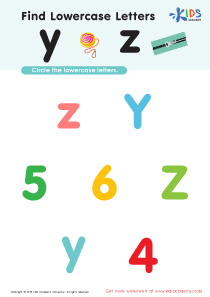Letter recognition Normal Uppercase Letters Worksheets for Ages 6-9
11 filtered results
-
From - To
Explore our engaging "Letter Recognition Normal Uppercase Letters Worksheets" designed specifically for children aged 6-9! These printable resources provide a fun and interactive way for young learners to identify and practice uppercase letters. Activities include tracing, matching, and coloring tasks to enhance letter recognition skills. Our worksheets cater to varying levels of ability and make learning enjoyable. Perfect for classroom use or at-home practice, these resources help strengthen foundational literacy skills while promoting fine motor development. Download our worksheets today and let your child embark on an exciting journey into the world of letters!
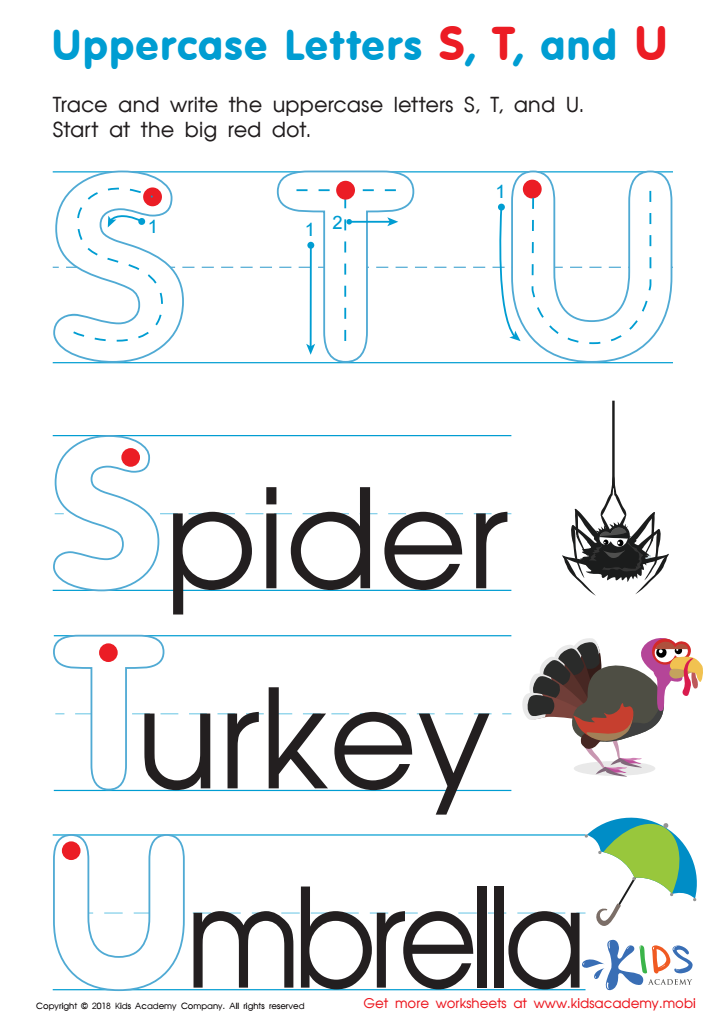

Uppercase Letters S, T, and U Worksheet
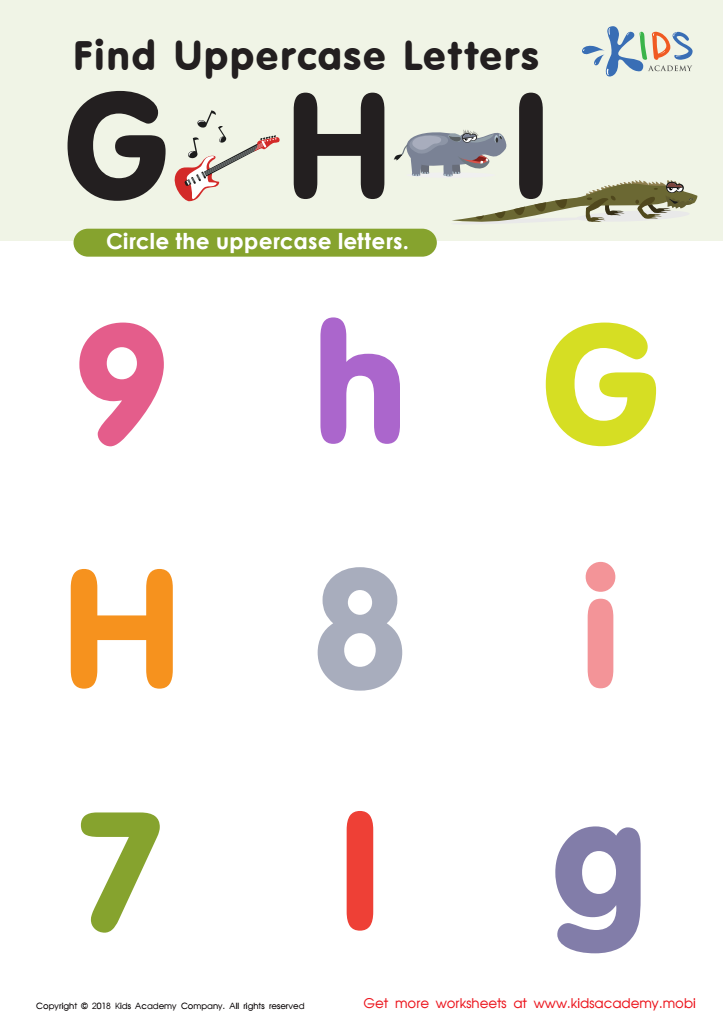

Find Uppercase Letters G, H, and I Worksheet
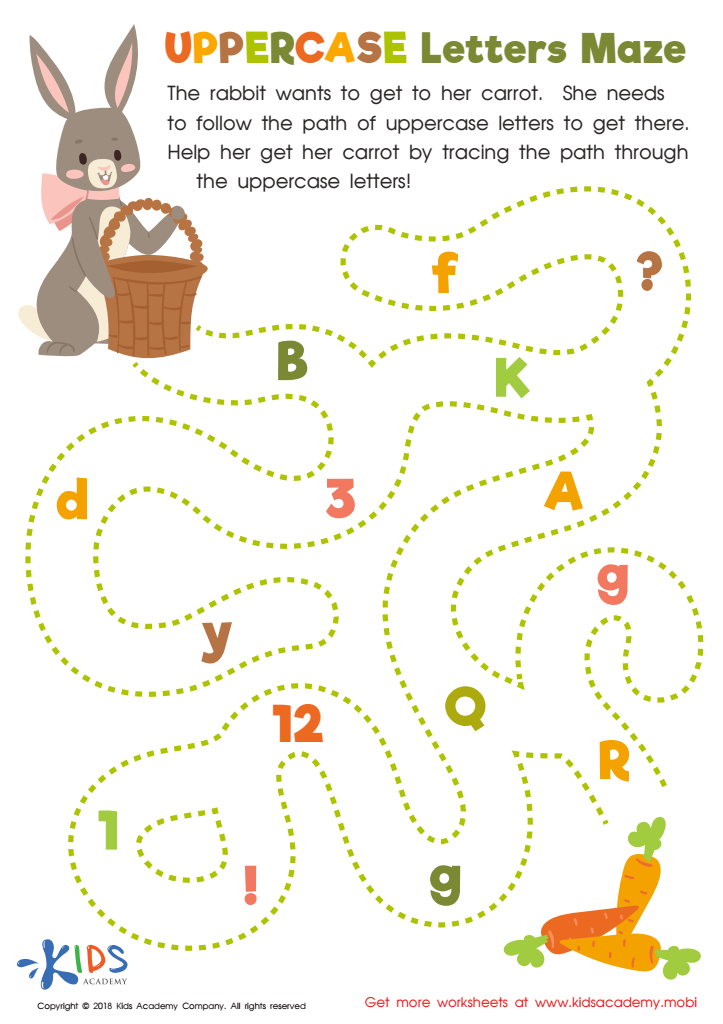

Uppercase Letters Maze Worksheet
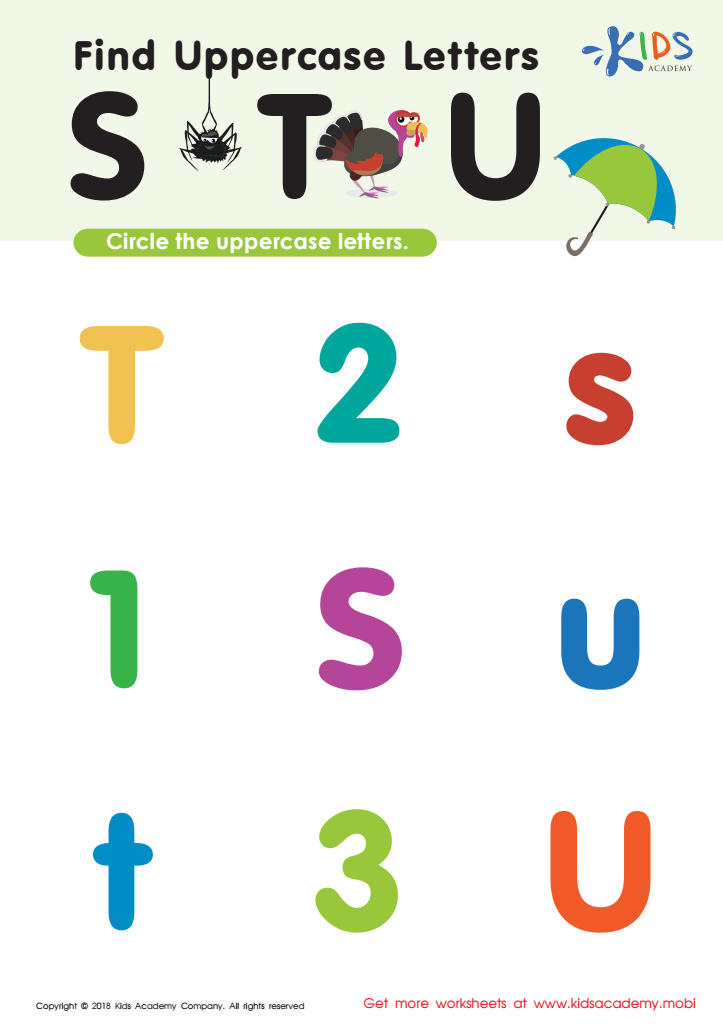

Find Uppercase Letters Worksheet
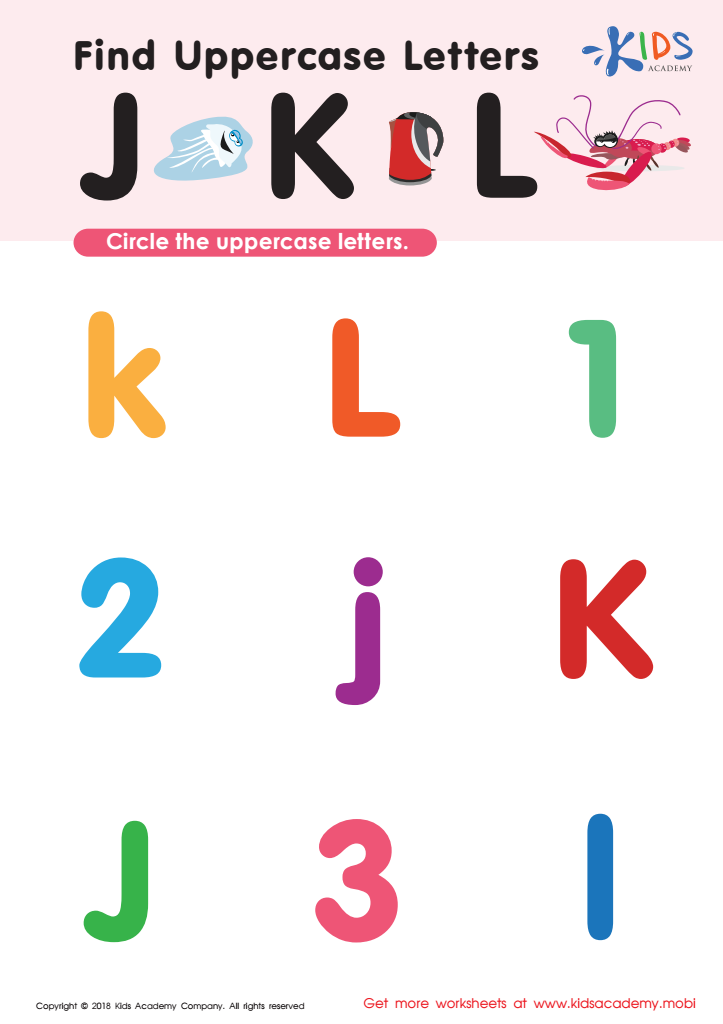

Find Uppercase Letters J, K, and L Worksheet
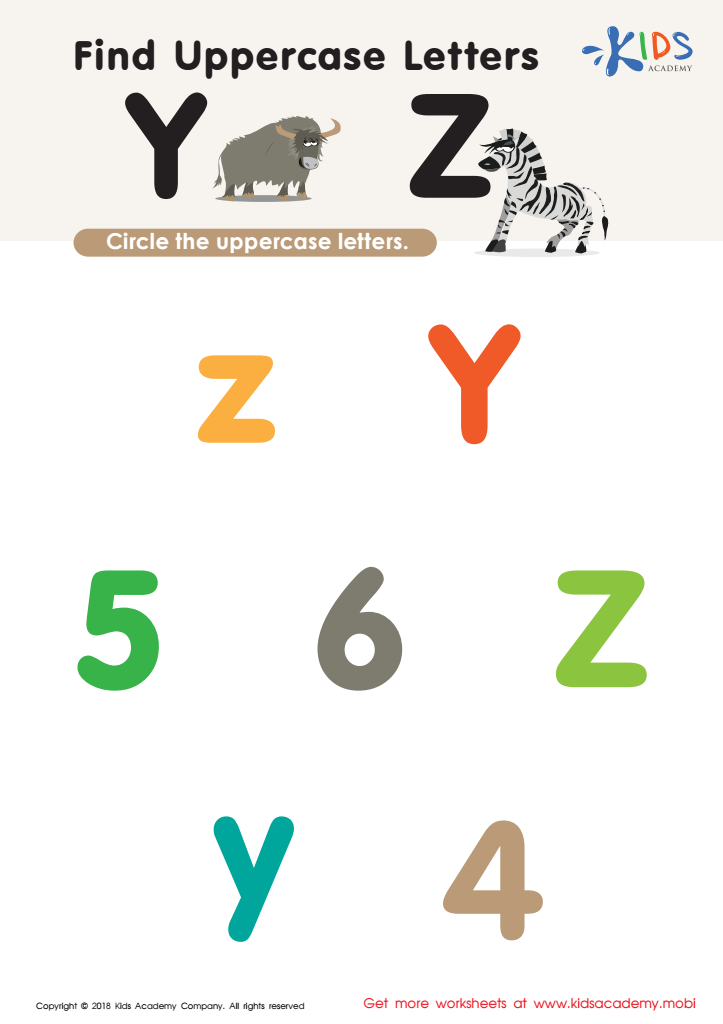

Find Uppercase Letters Y Z Worksheet
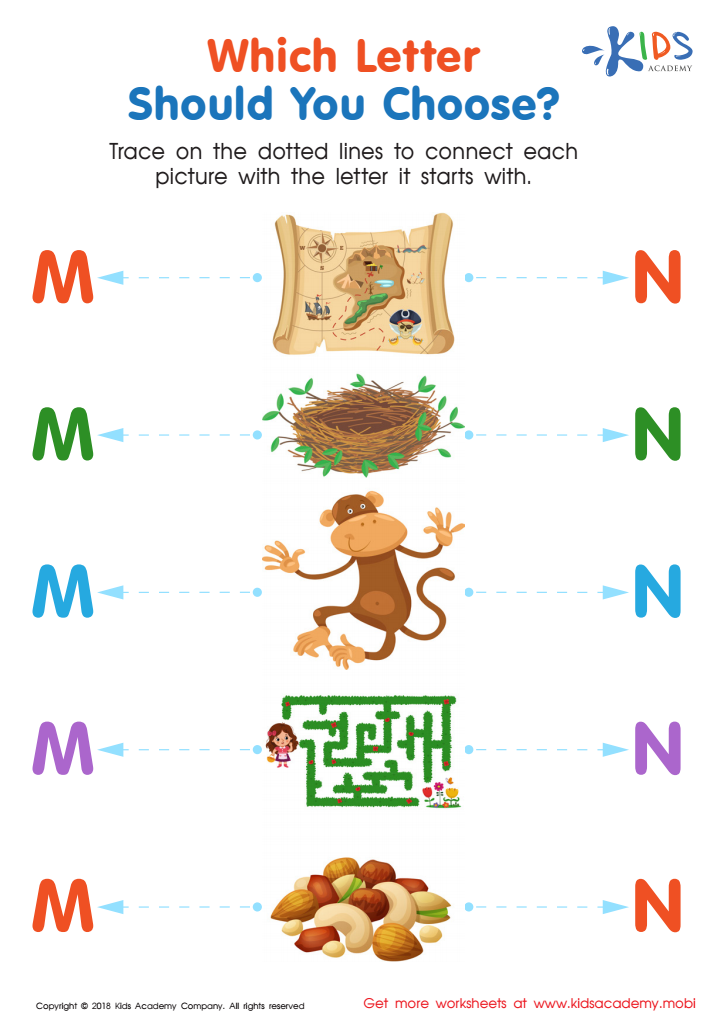

Which Letter Should you Choose? Worksheet
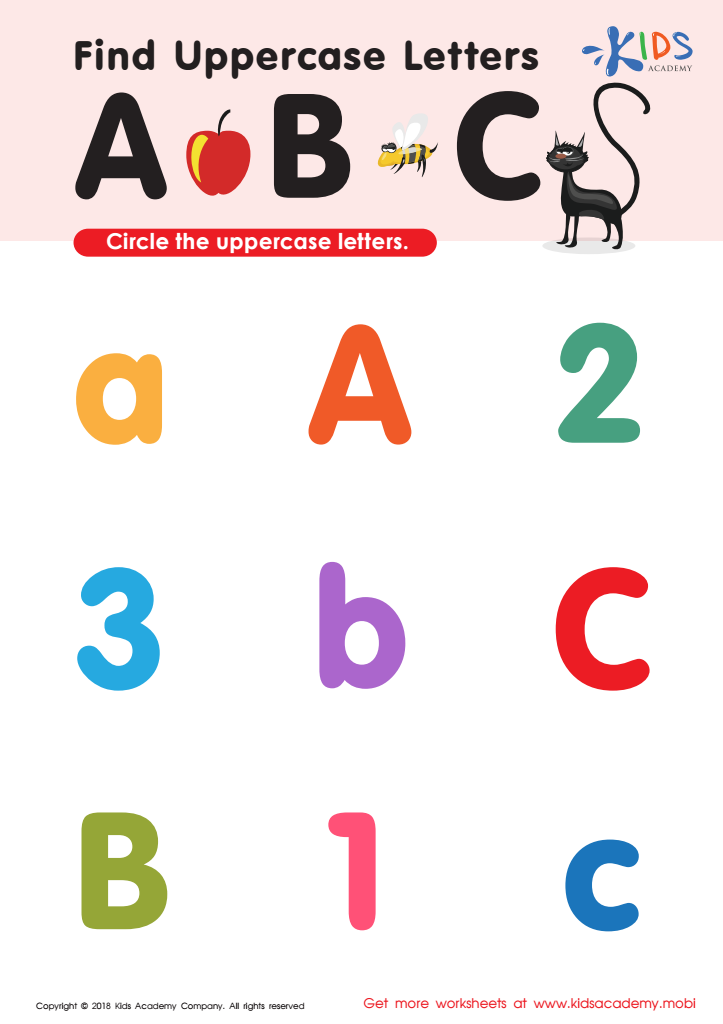

Find Uppercase Letters A, B, and C Worksheet
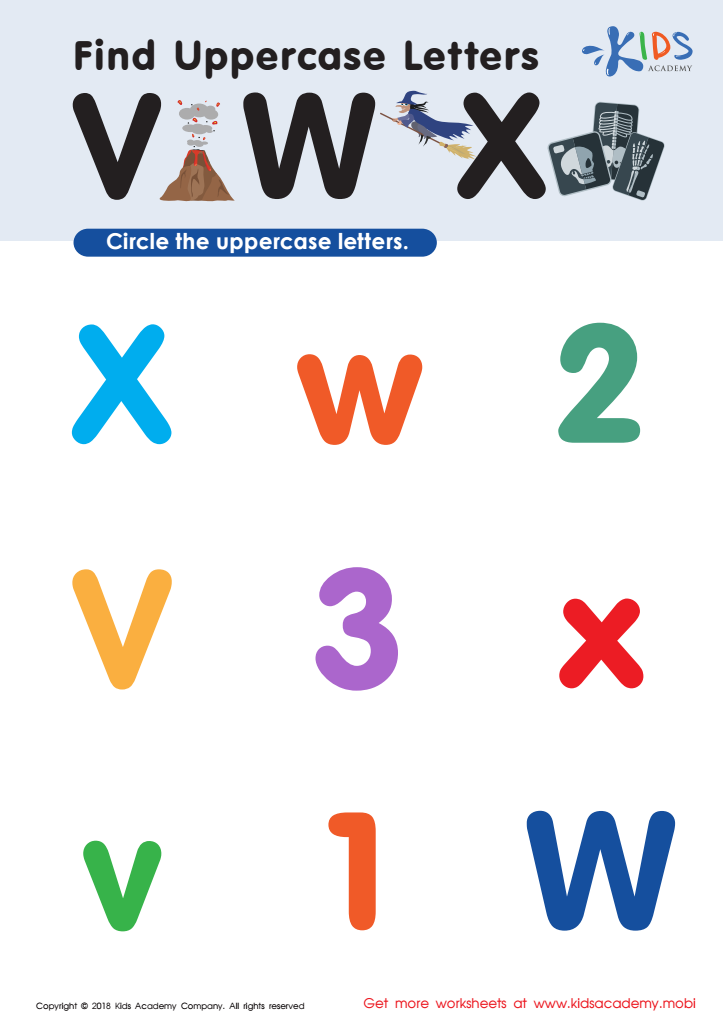

Find Uppercase Letters V, W, X Worksheet
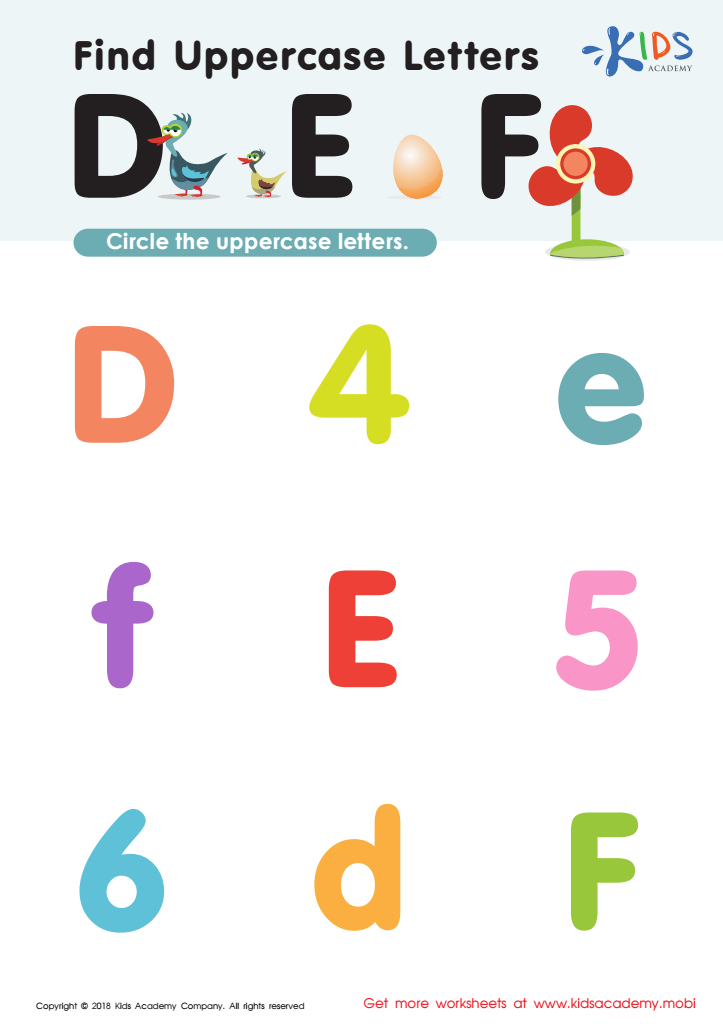

Find Uppercase Letters D, E, and F Worksheet
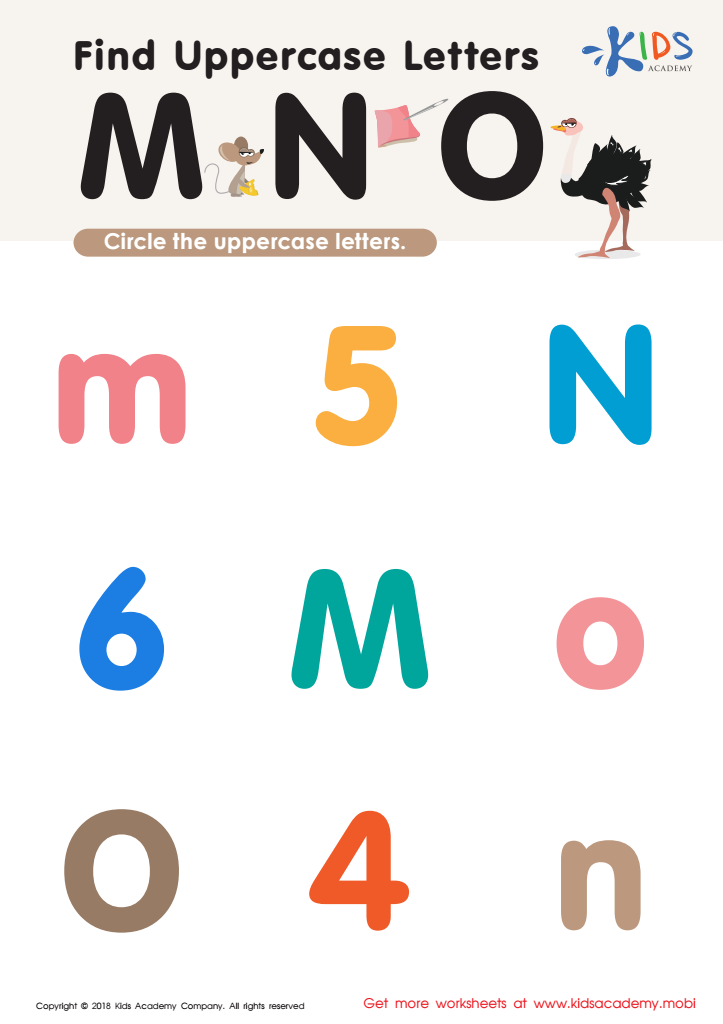

Find Uppercase Letters M, N, and O Worksheet
Letter recognition of uppercase letters is crucial for children aged 6-9 as it lays the foundation for reading and writing skills essential for academic success. At this stage, students are transitioning from learning to read to reading to learn, making letter recognition integral to comprehension and vocabulary development.
First, recognizing uppercase letters helps children understand the structure of written language. Many educational materials and children's books use uppercase letters to begin sentences and promote names and titles, thus familiarizing students with important literacy concepts.
Additionally, mastery of uppercase letters supports phonics development. Children often connect the shape and form of letters to their corresponding sounds, allowing them to decode new words effectively. Without solid letter recognition, students may struggle to make these connections, hindering their reading fluency.
Furthermore, letter recognition plays a significant role in spelling and writing. As students grow confidence in identifying uppercase letters, they can better express themselves through writing, aiding both creative and narrative skills.
Ultimately, educators and parents who emphasize letter recognition equip children with essential tools for academic achievement and lifelong learning, fostering a love for reading and improved communication skills. Competence in this area not only enhances literacy but also builds a strong foundation for future language development.
 Assign to My Students
Assign to My Students









